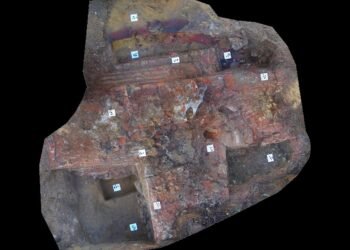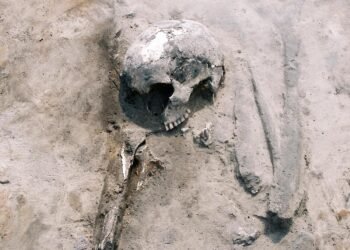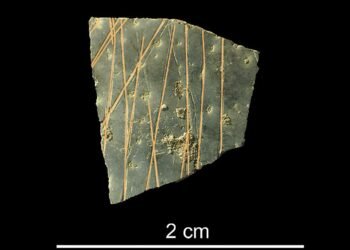A small silver amulet has been unearthed at the Deultum-Debelt National Archaeological Reserve in southeastern Bulgaria. This artifact, dating from the late 2nd to early 3rd century CE, is believed to be the earliest known Christian relic in the region, marking a significant milestone in understanding the spread of Christianity.
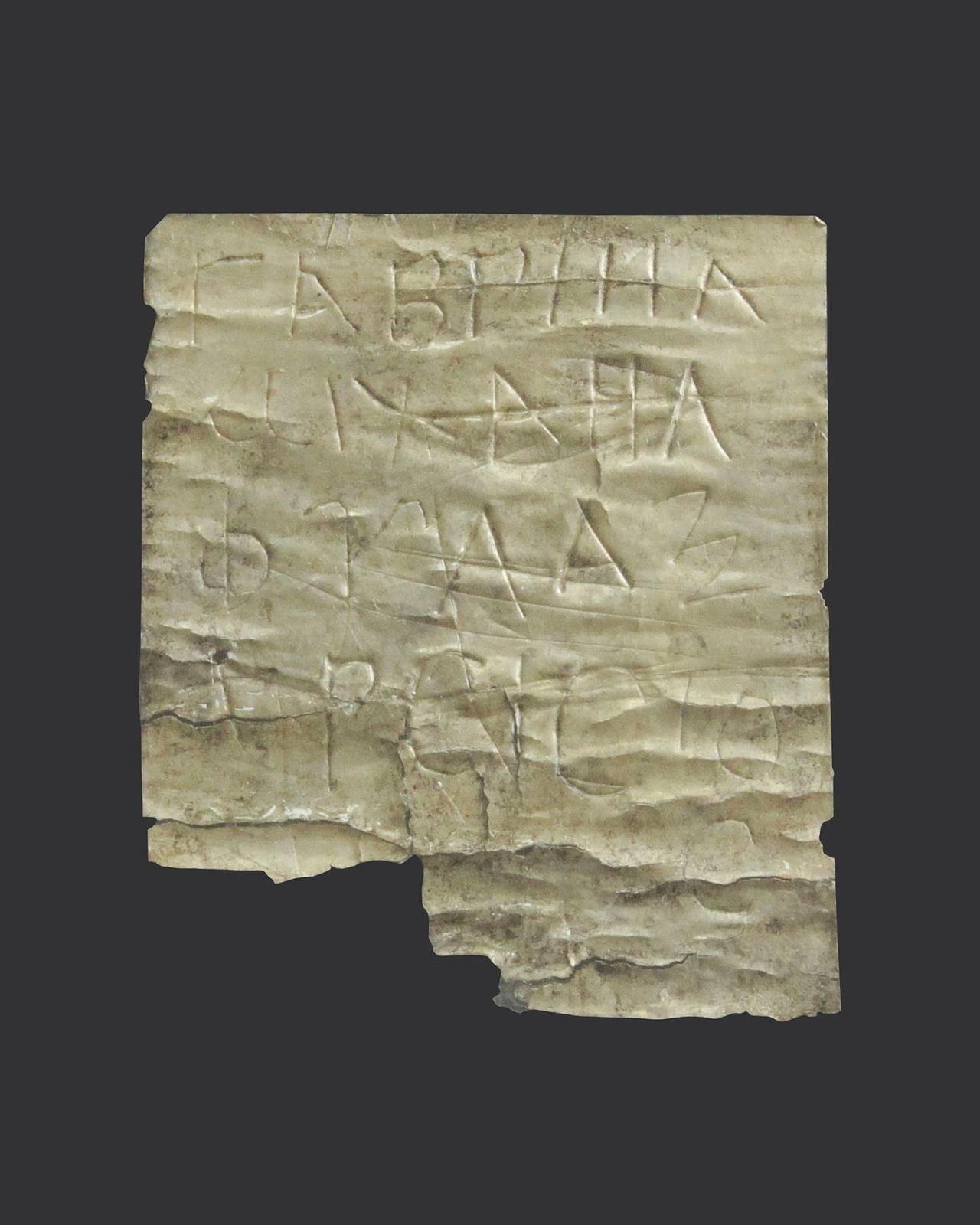
The amulet was found in the burial of a young man in the necropolis of the ancient Roman colony of Deultum, near the modern-day village of Debelt. Initially appearing as a silver ingot, the artifact was later identified as a rolled-up sheet of silver inscribed in Greek with the names of archangels Gabriel and Michael, along with a reference to Christ as the “Guardian” (+ΡЄICTOC). This discovery was made during the summer excavations of 2023, led by Krasimira Kostova and Assoc. Dr. Ivo Cholakov from the National Archaeological Institute with a Museum at the Bulgarian Academy of Sciences.
The inscription was meticulously restored and analyzed by Silvia Borisova, and its significance was interpreted by renowned epigrapher Dr. Nikolay Sharankov from Sofia University. Dr. Sharankov explained that the term “Guardian” not only denotes Christ’s protective role but also aligns with the purpose of the amulet, which was to provide protection to its wearer. The rotated first letter of Christ’s name forming a cross is a symbolic feature found in early Christian inscriptions, reflecting the covert ways early Christians expressed their faith amidst the fear of persecution.
Dora Todorova, the curator at the reserve’s museum noted that early Christians often used discreet symbols like birds or fish to signify their faith. The amulet’s concealment in a burial site highlights the secrecy with which early Christians practiced their religion.
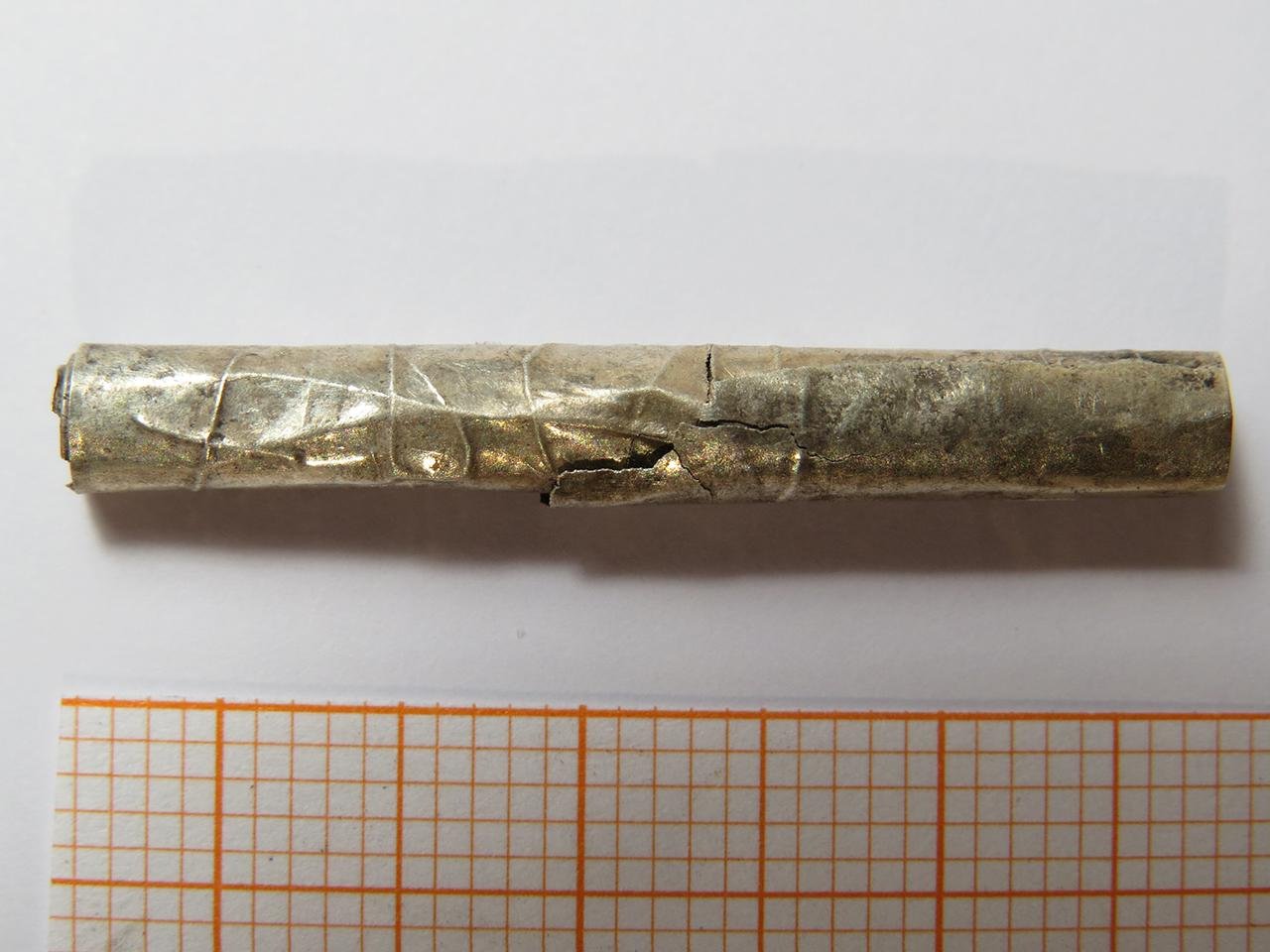
Dr. Sharankov’s analysis, featured in the specialized publication Archaeologia Bulgarica, further dates the artifact to the late 2nd or early 3rd century CE. He argued that this makes it the oldest Christian monument in Bulgaria, predating other known references to Christ in the region. Sharankov pointed out that while explicit references to Jesus Christ were rare, this amulet allows for a direct mention without ambiguity, marking a significant discovery for the study of early Christian communities.
The site of Deultum itself has a rich history, founded by Roman Emperor Vespasian around 70 CE as a colony for veterans of the Legio VIII Augusta. It was the first Roman colony in what is now Bulgaria and became a prosperous trading hub due to its strategic location near the Black Sea. The colony reached its peak during the Severan dynasty in the late 2nd and early 3rd centuries.
Deultum was also the first known town in Bulgaria to have a Christian bishopric. Historical records, such as those by Eusebius of Caesarea in his Historia Ecclesiastica, mention Aelius Publius Julius, a bishop active in the 170s.
The discovery of the silver amulet is not an isolated event but part of ongoing archaeological efforts at the Deultum-Debelt National Archaeological Reserve, which began in the 1980s. Excavations have revealed a wealth of artifacts, including glass embalmers, medical implements, children’s toys, jewelry, ceramics, military paraphernalia, and musical instruments.





